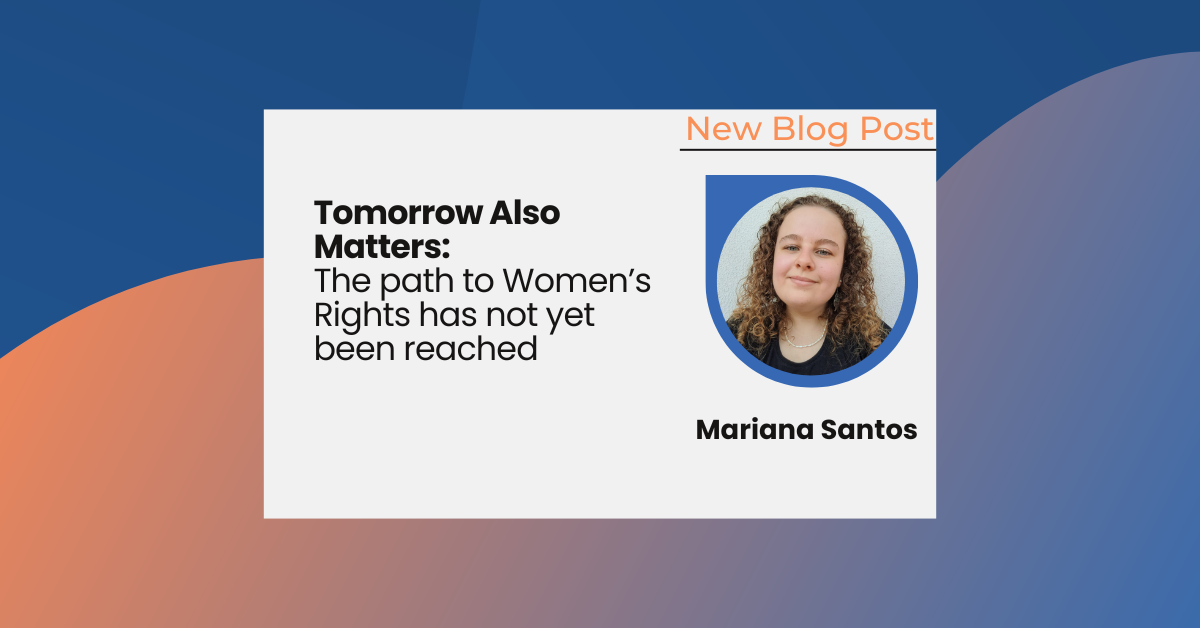By Mariana Santos
As the portuguese singer José Mário Branco said in his song “Cantiga Sem Maneiras“, “Sou mulher de trabalho e falo com poucas maneiras…” (“I am a woman of work, and I speak with few manners…“). Women have always been imposed with this idea of docile behavior, sobriety, camouflage, in short, “good manners.” This is just one of many aspects of gender inequality women face in our world based, constructed and fed by and to the patriarchy. In this world, we are educated to act foolish and so we are obliged to learn how to survive with these constraints.
Although the Gender Equality Index of 2023 surpassed 70 points for the first time, showing a growth of 1.6 points, much remains to be done. Since 2013, the year the Index was first compiled, this is the highest score. But the study also shows us that gender inequalities have grown in economic terms, such as available time for social activities, health status, and access to health services.
The recent years have been marked by repetitive shocks and multiple crises, such as the COVID-19 pandemic, which triggered a global health crisis, as well as Russia’s aggression towards Ukraine, displacing refugees, the majority of whom are women and children. Alongside these events, we witness the rising cost of living, while climate disasters increase in frequency and severity. Something we can point out when we look at the Gender Equality Index of 2023, as a constant over the years, is the fact that as soon as these events begin, it is women and young girls who suffer disproportionately. Their unequal position in society means they have fewer established means to cope with the global contingencies they face.
One of the root indicators of gender inequality is the time allocated by women to domestic work. There are too many men who do not live or work in a contextual bubble that allows them to be caregivers as well. In fact, there are still few workplaces that support caregiving by men, and even fewer public policies that even consider caregiving by men. Thus, boys grow up with fathers who do not provide care, perpetuating the cycle.
The rise of the far-right throughout Europe and the world has been exacerbating these numbers, normalizing behaviors that place women in the background. Thus, we experience the growth of anti-democratic populist movements, which use less perceptible, less demarcated, and therefore much more dangerous discourses, leading to clear setbacks in women’s rights. It is not possible to combat hate speech without combating sexism and racism. The growth of populist parties is due to dissatisfaction with the effects of globalization and the consequent alienation of citizens from politics. In fact, the electoral support for the far-right frequently comes from the people who lost with globalization, whose profile is associated with the white man, young, that has some educational degree and is concerned about migrants and immigration, as Cas Mudde defends.
But a major factor leading to the growth of populist parties is the citizens’ perceptions that their problems such as inadequate salaries, habitation, transports or other more day-to-day problems are forgotten while women’s rights have been overly emphasized by more mainstream parties. This leads citizens to perceive that their problems and concerns are not addressed.
Within the European Union, it is not enough for us to diagnose the far-right movements and their respective discourses; it is imperative to outline strategies and develop the necessary means to combat them within a democratic framework. The upcoming elections for the European Parliament will be extremely important to address the failures and problems that still persist. Europe must move forward, implementing equality projects for women and placing them side by side with men in making important decisions.
Being a woman is much more than having the ability to give birth to a human being; it is about being fair and determined. It is about facing prejudice every day just for being a woman. March 8th serves to remind us that the fight is still unfinished and that sometimes “good manners” are not enough to combat inequalities. Tomorrow also matters. In fact, every day matters, and each additional day should be a step closer to gender equality. So we must celebrate Women’s Day every day and be sure that we walk all together to a more equal future.
About the Author
Mariana Santos is Graduated in International Relations from the Faculty of Economics of the University of Coimbra, where she co-founded the course’s academic journal. Currently studying for a Masters in Public and Political Communication at Sciences Po Bordeaux and Sociology at the University of Coimbra.

